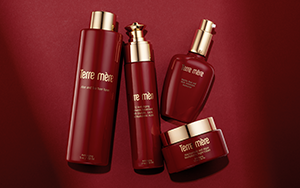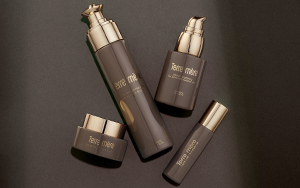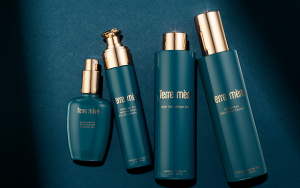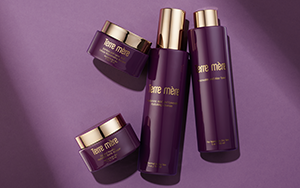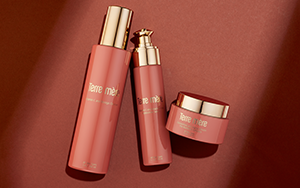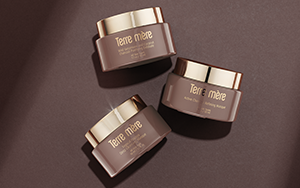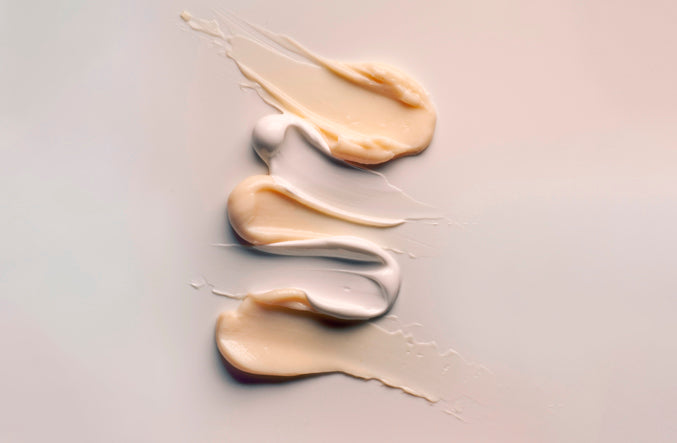
If you use lotions, shampoos, makeup, and pretty much any other cosmetic product, the chances that you’re using animal-derived products (even without realizing it!) are high. It’s quite common in the cosmetics industry to use natural, animal-derived ingredients in all types of popular products, given that many of them offer health benefits for the skin and hair. But the good news is that some of those ingredients have nearly identical vegan counterparts, meaning it’s possible to obtain their benefits without the cruelty of animal exploitation. By avoiding animal-derived ingredients and opting for vegan ones, consumers can promote not only the welfare of animals, but also themselves. Here are 17 of those ingredients and their vegan alternatives!
Lanolin
Lanolin is a waxy substance derived from the sebaceous glands of sheep. Sometimes it’s referred to as “wool fat,” but it’s technically not a true fat — it’s an oil that’s extracted from the wool of sheep after they’ve been shorn. Though the image of shearing a sheep for wool may not seem terribly cruel, the truth is that the wool industry employs shearing tactics that are unnecessarily harmful towards the animals. Sheep naturally produce lanolin to condition and moisturize their wool, and it has a similar effect on humans. It holds up to 400% of its weight in moisture, which is why it’s commonly found in skin-hydrating products such as lip balms, lotions, and even mascara. Plant-based lanolin, however, is a popular vegan alternative to conventional lanolin and is just as effective.
Glycerine
Glycerine, also known as glycerol, is an odorless, colorless liquid that is sometimes derived from tallow, or animal fat. It works as a natural moisturizer, repairing damaged skin tissue and scars while preventing signs of aging. You can find it in many perfumes, lotions, skin care products, shaving creams, and hair care products. Luckily, glycerine can also come from plant-based sources, which means if the ingredients list on a bottle doesn’t explicitly state “vegetable glycerine,” chances are high that the glycerine comes from an animal.
Casein
Also known as sodium caseinate or simply caseinate, casein is the primary protein found in milk. Oddly enough, casein can also be found in shampoos, lotions, and baby care products. What is a milk product doing in your cosmetics, you might ask? It acts as a binding agent and is known to smooth out the skin’s texture. But, like any products derived from dairy, casein comes at the expense of livestock and can trigger allergic reactions in people with sensitivities. The plant-based alternative to casein is called legumin, which is obtained from legumes like beans, peas, lentils, and hemp.
Squalene
Sharks are pretty spooky, but putting on cosmetics made from shark livers? Even spookier. That’s what happens when you use products containing squalene, a natural, organic compound obtained from shark liver oil. It’s used for its powerful anti-aging and moisturizing properties, but trust us: there are plenty of anti-aging ingredients out there that don’t involve slashing the livers out of sharks, like vitamin C, antioxidants, and zinc oxide.
Guanine
If you’ve ever used a pearly, metallic nail polish or eye shadow, chances are you’ve come into contact with guanine. And if you’re not already sitting down, you may want to take a seat for this: guanine is derived not only from fish scales, but also guano, which is a more elegant name for bat poop. Better alternatives to guanine include ingredients like leguminous plants, synthetic pearl, or aluminum and bronze particles.
Oleic Acid
Oleic acid (also known as oleyl stearate, oleyl oleate, or tallow), is a fatty acid that occurs naturally in various animal fats. In cosmetics like cleansers and lotions, it’s used as a cleansing agent and texture enhancer. Oleic acid aids in hydrating the skin, but you don’t need to use animal-derived oleic acid to moisturize. It can also come from various plant-based sources, like olive oil, sunflower seed oil, argan oi, and avocado oil.
Stearic Acid
Commonly used in soaps and cleansers, stearic acid works to improve the texture and consistency of the products it’s mixed with. It naturally moisturizes and cleanses the skin, which is why it’s popular in many skincare products. Unfortunately, stearic acid is often derived from pork fat. You’re better off using products that source stearic acid from plants, like coconut oil, cocoa butter, and palm kernel oil.
Carmine
Cosmetics that contain red coloring, such as lipstick, blush, nail polish, and bronzer, usually contain carmine. It’s considered a natural dye, but that’s because it’s made from crushed cochineal insects. Carmine is sometimes disguised as “cochineal extract” or “natural red 4” on ingredient labels, so be on the lookout. Instead of buying products made with carmine, opt for those with bug-free dyes, like those made from beets and carrots.
Collagen
The human body naturally produces collagen, a protein that’s responsible for keeping our skin looking young and taught. We produce less collagen as we age, which is why applying collagen topically (and even drinking it in supplement form) is lauded as a safe and natural skincare treatment. However, cosmetic collagen is usually derived from the bones, skin, and connective tissue of animals, including cattle, fish, horses, pigs, and rabbits. Collagen doesn’t have a vegan alternative, but that doesn’t mean you can’t boost your body’s natural collagen with the help of some plant power. Certain herbs assist in the production of collagen, which you can either ingest or find in vegan skincare products.
Elastin
Like collagen, elastin is a protein that naturally occurs in humans. It gives our skin and internal organs structure and support, but over time, our bodies produce less of it. As a result, many skincare companies harvest elastin from dead cows or birds to put in anti-aging creams. You can skip the elastin and reap the same anti-aging benefits from vegan collagen-boosting alternatives.
Beeswax
Beeswax is secreted by worker bees and used to form cells in beehives. It’s also commonly used in lip balm, lip gloss, hand creams, salves, mustache wax, and moisturizers. Thanks to its lubricating properties, beeswax creates a barrier that seals moisture into the skin. But if you’re looking for vegan alternatives to beeswax, scan the ingredients list for candelilla wax. It’s probably the most frequently-used beeswax substitute and is derived from candedilla, a species of flowering plant native to the American Southwest and Mexico. Vegan beeswax is also an option — typically, it’s made from plants like sunflowers, rice bran, or berries.
Propolis
When bees aren’t busy making honey or beeswax, they’re also producing propolis. Propolis is a compound created when bees combine the sap of evergreens with their own discharges. In cosmetics, it’s mainly used as an emulsifier and as an antibacterial and antifungal agent. Propolis is rich in a type of antioxidant called bioflavonoids, which are also found in citrus fruits and vegetables. As an alternative to propolis, consider using vitamin C-based products, which are packed full of antioxidants.
Royal Jelly
Royal jelly is another bee-derived secretion. Rich in vitamin B, proteins, amino acids, and minerals, royal jelly is often used in anti-aging and rejuvenating skincare products. Good vegan alternatives to royal jelly are natural oils derived from nuts and seeds, such as sunflower seed oil, pumpkin seed oil, and watermelon seed oil.
Retinol
Hailed as another powerful anti-aging remedy, retinol is a derivative of vitamin A often harvested from animal byproduct. On ingredients lists, it’s known as “retinoid,” but if it comes from plant-based sources (usually vegetables like carrots or fruits like cantaloupe), you’ll see it listed as “carotenoid.” Another vegan source of retinol is bakuchiol, which is found in the seeds and leaves of a plant called psoralea corylifolia.
Hyaluronic Acid
A popular moisturizing and anti-aging ingredient, hyaluronic acid often comes from the combs of roosters — the rubbery, red crown at the top of their heads. Hyaluronic acid is also possible to source from microbial fermentation of plants, but usually, ingredients labels won’t specify whether their hyaluronic acid is plant or animal-based. It’s a good idea to check with the manufacturer directly before purchasing hyaluronic acid.
Lecithin
Lecithin, like collagen and elastin, is naturally found in the human body. When used in skincare products, it’s known to even out the skin’s texture and restore its hydration. Often, it’s derived from eggs or fish, but you can also find products with lecithin made from sunflower seeds and soybeans.
Animal Hair
Hair from goats, mink, squirrels, and other animals is sometimes used to manufacture makeup brushes. To avoid using brushes that promote animal cruelty, it’s best to stick with synthetic ones. You can find plenty of brushes made of recycled plastic and even plant material, like bamboo. Another added benefit of synthetic hair brushes is that they’re cleaner: synthetic hair doesn’t accumulate with bacteria as quickly as natural hair does.

